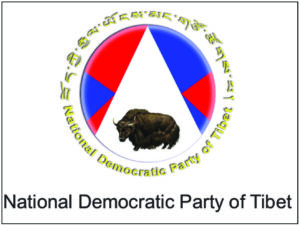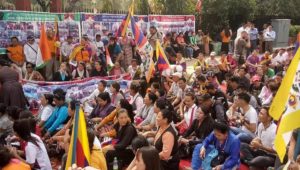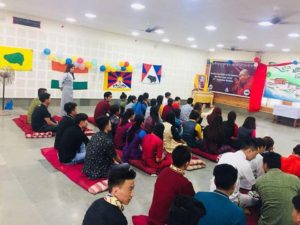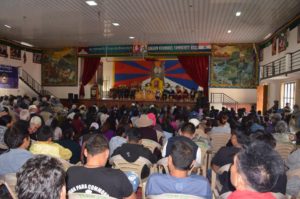 On meeting Tsering Yangzom, the International Secretary of the National Democratic Party of Tibet (NDPT), one’s first impression is one of youthful enthusiasm mixed with a hefty dose of idealism.
On meeting Tsering Yangzom, the International Secretary of the National Democratic Party of Tibet (NDPT), one’s first impression is one of youthful enthusiasm mixed with a hefty dose of idealism.
“Tibetans should work, stand and fight together,” she speaks out. “We are all aiming for the same thing: to return to Tibet, and so we must solve issues quickly.”
This youthful zeal seems to be a characteristic of the organisation she represents. The NDPT was established in 1994 by the Tibetan Youth Congress under directives received from His Holiness the Dalai Lama.
The organisation could only have formed in the context of political party in Tibetan history.
On the one hand it is an NGO that promotes and protects national unity and integrity by abandoning any prejudice based on religion, regionalism and status of Tibetan people, and looks forward to the introduction of true democracy in the day that a free Tibet is attained.
On the other hand, the NDPT is a political party that endorses Sikyong (President) candidates and members of the Tibetan Parliament-in-Exile.
It takes a delicate balance to ensure that the organisation meets both its mandates.
The party celebrates its 25th founding anniversary this year. Membership of the organisation is open to Tibetans above the age of eighteen. It has 7,000 members and has 48 chapters in India, Nepal and Bhutan. There are coordinators in the USA, Australia and Switzerland. The Central Executive Committee (CENTREX) is the highest office of the organisation and is elected for a three-year term. It currently consists of eight executive members.
The NDPT has regular events aimed at bringing the message of democracy to Tibetans and seeking international supporters.
Special events are held to mark special occasions such as Human Rights Day, World Rivers Day, the Panchen Lama’s birthday, the Dalai Lama’s birthday and the commemoration of the receipt of the Nobel Prize.
Tsering Yangzom explains about the leadership training given to young Tibetan leaders in various universities to equip the youth. She explains that a wide variety of skills are taught. As a former staff member of the Tibetan Women’s Association it is no surprise that she is very enthusiastic about the Gender Equality training included as part of the course.
We shift the conversation to Gender Equality, and she explains that she believes in the removal of gender stereotypes. For example, it is perceived in the Tibetan community that only men play basketball, footballs in earlier thoughts of elders. Why a woman should not want to play basketball too, she asks.
The Party hosts public discussions on democracy process and electoral system. Tsering Yangzom emphasizes that it is necessary for every Tibetan to know their rights and responsibilities.
The organization has several important goals, such as
• to help strengthen the democratic process initiated by His Holiness the Dalai Lama.;
• to work for the preservation and promotion of Tibet’s unique traditions and rich cultural heritage, as well as to respect the right of all Tibetans to practice the faith of their choosing;
• to struggle for the restoration of Tibet’s rightful independence;
• to become informed and educated and to gain necessary experience so that true democracy can be put into practice soon after Tibet regains independence;
• to establish fruitful relations in the international arena with other governments and parties who hold similar objectives and policies; and
• to become a forum for intellectual debates and discussion; both of those who hold similar varied positions; and at the same time the NDPT considers it equally important to keep alive the issue of Tibet on the international stage.







 Print
Print Email
Email













